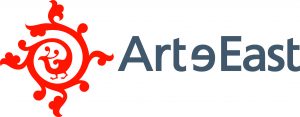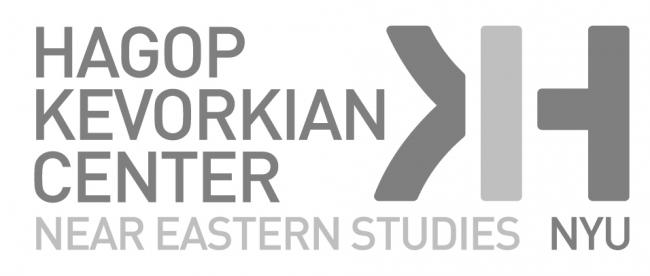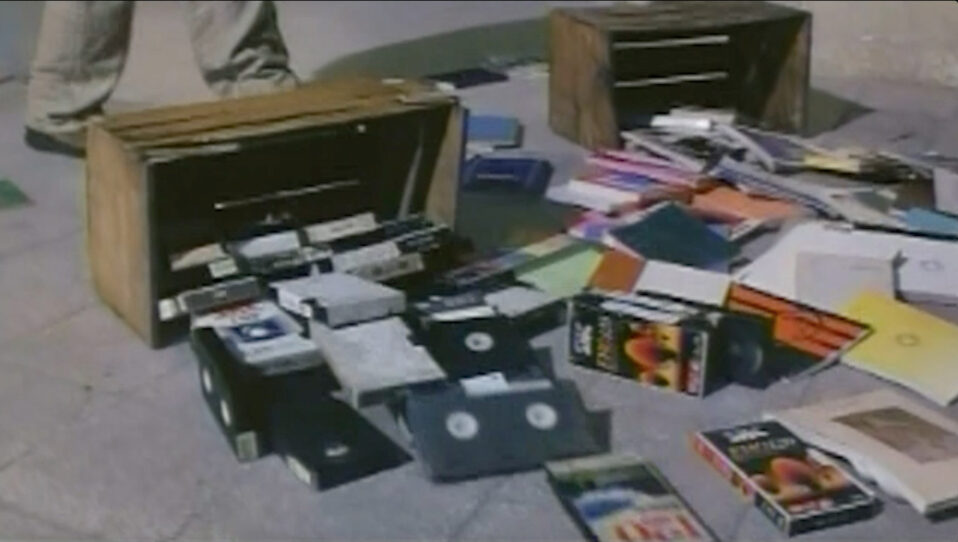Image: Under the Ceiling (film still), Nidal Al-Dibs, 2005.
Alternative Archives: Discourses and Disruptions
AANM, ArteEast and NYU’s Hagop Kevorkian Center for Near Eastern Studies are excited to come together to present Alternative Archives: Discourses and Disruptions, a series of events that will explore themes of storytelling, archiving and evolving technologies in the digital world as they relate to the SWANA (South West Asia and North Africa) region. These programs are part of two broader thematic series from the Kevorkian Center titled Digital Forays and Global Uprising. For more information or to RSVP for all sessions, visit www.alternativearchives.org
12:30 – 3:30 p.m. EDT Thursday, Oct. 15, 2020
Session 1: Digital Forays: Archives & Activation // Artists & Access
Online via Zoom
Registration required
The last 20 years have been marked by the expansion and creation of many archival projects across the SWANA region. What is saved? Who decides what is of worth? How accessible does it become? How are artists and cultural works accessing, making and moving beyond archives?
When speaking of Archives & Activation // Artists & Access, what are the absences, gaps, cracks…?
How is digitality, in a broader sense, bridging, morphing and exploiting the gaps of knowledge and access?
Featuring panelists Diana Allan, Asunción Molinos Gordo and Mohammad Shawky Hassan with moderator Helga Tawil-Souri.
Diana Allan is an Assistant Professor at McGill University in the Department of Anthropology and the Institute for the Study of International Development. She is a filmmaker and anthropologist, and the founder of two grassroots media collectives in Lebanon, the Nakba Archive and Lens on Lebanon. Her ethnography, Refugees of the Revolution: Experiences of Palestinian Exile (2014) won the 2014 MEMO Palestine academic book award and the 2015 Middle East Section Award (AAA). She is currently working on a historical ethnography of the sea in Palestine.
Asunción Molinos Gordo is a research-based artist strongly influenced by disciplines such as anthropology, sociology and cultural studies. In her practice she questions the categories that define “innovation” in mainstream discourses today, working to generate a less urban-centric way of understanding progress. She won the Sharjah Biennale Award in 2015 with her project WAM (World Agriculture Museum). Her work has been exhibited at museums and institutions around the world. In 2014 Molinos was a resident at Delfina Foundation, during the first iteration of The Politics of Food thematic programme and in 2019 she was a resident at CCA Glasgow with Verbatim Theatre mentor Mark Jeary. Molinos has been commissioned to create Art Jameel’s 2020 Artist’s Garden Project in Dubai.
Mohammad Shawky Hassan is a filmmaker and video artist living and working between Cairo and Berlin. He studied philosophy, film directing and cinema studies at the American University in Cairo, The Academy of Cinematic Arts & Sciences and Columbia University. His films include It Was Related to Me (2011), On a Day like Today (2012), Compos Mentis (2016) and And on a Different Note (2015), which was acquired by the Museum of Modern Art (MoMA) in New York as part of its permanent collection. A recipient of the Fulbright Fine & Applied Arts Grant, his work has been shown at the Berlinale, Haus der Kulturen der Welt (HKW), MUCEM, Sursock Museum and Contemporary Image Collective (CIC) among other festivals and museums. In addition to his film and video work, he was the film programs director at ArteEast, the director of the Network of Arab Alternative Screens (NAAS), the Residential Fellow for Art & Philosophy at the Cairo Institute of Liberal Arts & Sciences (CILAS) and a Lecturer at the German University in Cairo.
Helga Tawil-Souri is a media scholar who focuses on spatiality, technology, and politics in the Middle East and especially Israel/Palestine, and methodologically incorporates political economy, visual and cultural studies, and cultural geography. Broadly, my work critiques the notion that we live in an increasingly open and borderless world, by analyzing how technologies and their infrastructures – such as cell phones and the internet – are explicitly territorial and political and often impose new forms of borders and controls. On the flip side of that, she is equally fascinated by how spaces and ‘things’ that are overtly territorial and political – borders, checkpoints, and identification cards, for example – themselves function in cultural ways. Most of her teaching is through the Department of Media, Culture, and Communication. Helga teaches undergraduate and graduate courses on topics including borders and spatiality; Arab media; critical theory and media studies; Israel/Palestine; war and media; globalization, international development, and commodities.
In partnership with


Due to the pandemic, we have been closed to the public since March 13. Closed doors mean that our earned revenue streams have dried up, and corporate funds have been pivoted to assist with COVID-19 relief or for their own financial survival. We are looking forward to the day we can safely reopen, but until then, we need your support.

